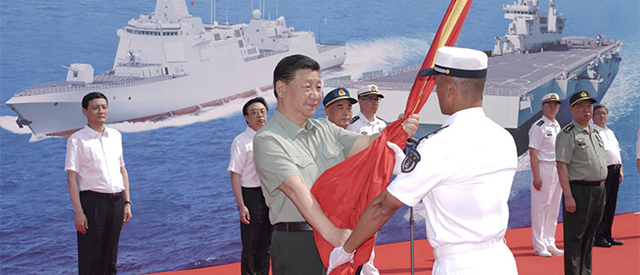
CMSI Red Books
Files
Download Full Text (7.4 MB)
Description
In October 2008, a month after Prime Minister Shinzo Abe of Japan stepped down and the more hawkish Taro Aso took office, a Chinese flotilla of four People's Liberation Army Navy (PLAN) ships transited from west to east through Japan's narrow Tsugaru Strait en route to the Pacific Ocean. The vessels were observed together in the Sea of Japan, headed east toward the strait, by a Japan Maritime Self-Defense Force (JMSDF) P-3C patrol aircraft; they were about twenty-five nautical miles west-southwest of Tappizaki, the cape at the northern tip of the Tsugaru Peninsula, where the Sea of Japan enters the Tsugaru Strait between the islands of Honshu and Hokkaido. The flotilla consisted of a Sovremennyy-class missile destroyer-one of four China bought from Russia between 1996 and 2002 a supply ship, and two Jiangkai frigates, one of which was a newly commissioned Jiangkai II. Apparently the Sovremennyy and one of the frigates had recently paid a friendly visit to a naval base in the Russian Far East before joining the other two Chinese naval vessels in the Sea of Japan and proceeding on through the strait to the Pacific Ocean.
ISBN
1884733603
Publication Date
February 2009
Publisher
China Maritime Studies Institute, U.S Naval War College
City
Newport, Rhode Island
Keywords
China Maritime Studies, China, Law at Sea, Japan
Recommended Citation
Dutton, Peter, "Scouting, Signaling, and Gatekeeping: Chinese Naval Operations in Japanese Waters and the International Law Implications" (2009). CMSI Red Books, Study No. 2.


